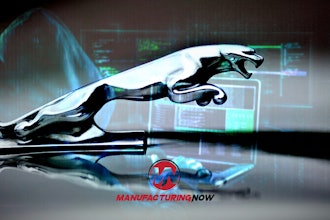As the world rushes to embrace electric vehicle technology, Ford became one of the first conventional automakers to match — if not outright exceed — the standard for EVs set by Tesla.
Now, Ford evidently also wants to catch up to its EV rival on Wall Street.
Bloomberg, citing people familiar with the matter, reports that Ford CEO Jim Farley is evaluating ways to separate its growing electric vehicle operations from its conventional internal-combustion engine vehicles — potentially including spinning one of them off into an entirely new company.
Ford executives are apparently interested in realizing the types of soaring share prices enjoyed by Tesla, Rivian and other entirely electric automotive startups. Separating the two vehicle types, the report said, would also allow the company to shed the costs of gas-powered vehicles and bolster access to capital markets.
The company, facing pressure from investors, reportedly discussed potential options with financial advisers late last year.
A spinoff plan, however, faces a series of potentially insurmountable hurdles. For one, the Ford family — which retains control over the automaker — likely fears losing its influence in the event of a full separation. The company’s dealer network and the United Auto Workers union would also have major concerns.
Farley’s thinking, therefore, has reportedly shifted toward an internal restructuring that would establish a separate EV division within Ford. That plan would still require significant legwork: Farley noted on an earnings call earlier this month that there are major differences between running a conventional car maker and an EV maker, from design and engineering through manufacturing and marketing.
But he also suggested that the automaker is interested in bold action rather than “half-measures” and “incremental change.”
Ford responded in a statement that it has no plans to spin off either its electric or conventional vehicle operations. The company has predicted that up to half of its U.S. sales could be electric vehicles by the start of the next decade.






















